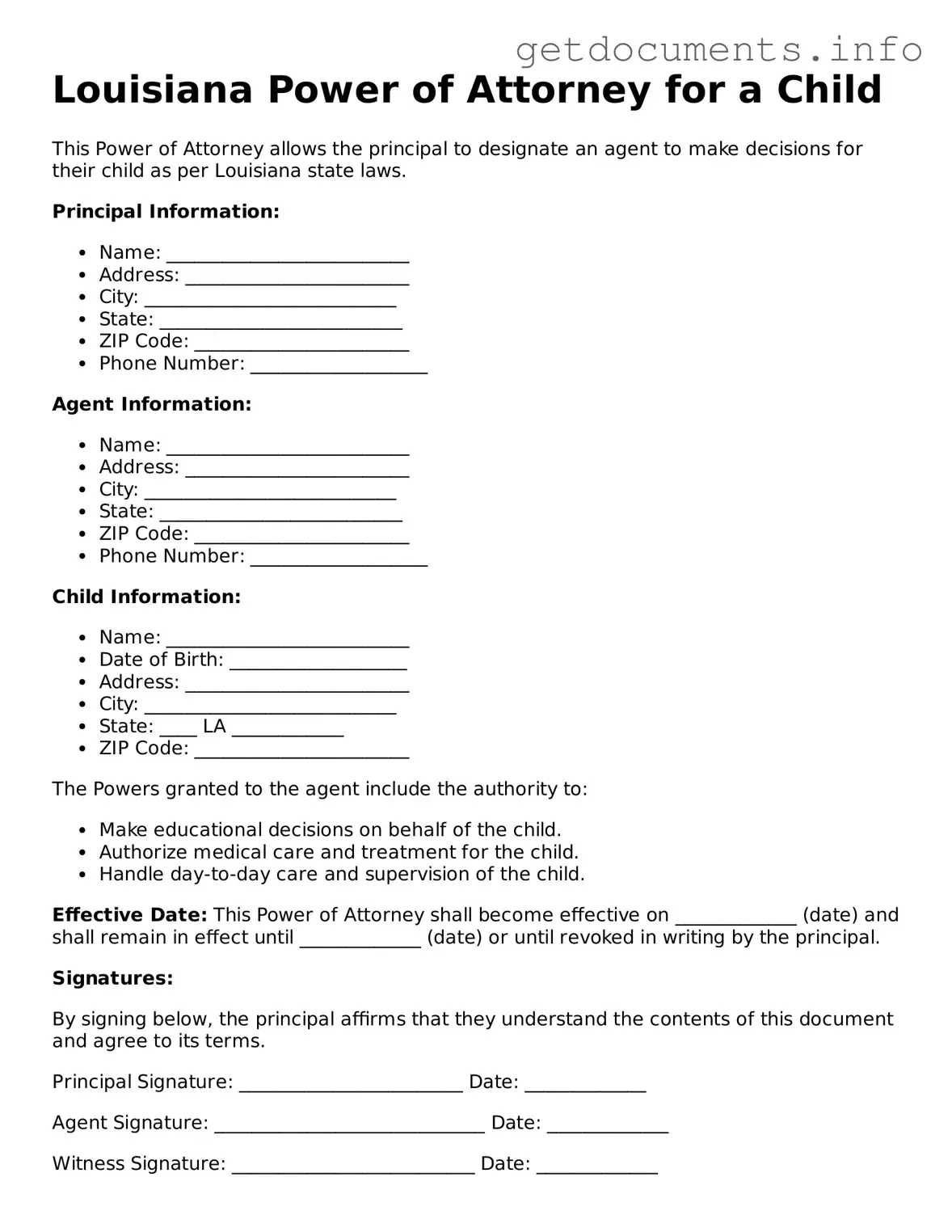Free Power of Attorney for a Child Template for Louisiana
The Louisiana Power of Attorney for a Child form is a legal document that allows a parent or guardian to grant temporary authority to another adult to make decisions on behalf of their child. This form is useful in various situations, such as when parents are traveling or need someone to care for their child for a specific period. To ensure the well-being of your child, consider filling out this important form by clicking the button below.
Access Power of Attorney for a Child Editor

Free Power of Attorney for a Child Template for Louisiana
Access Power of Attorney for a Child Editor
Got places to be? Complete the form fast
Fill out Power of Attorney for a Child online and avoid printing or scanning.
Access Power of Attorney for a Child Editor
or
⇩ PDF File
